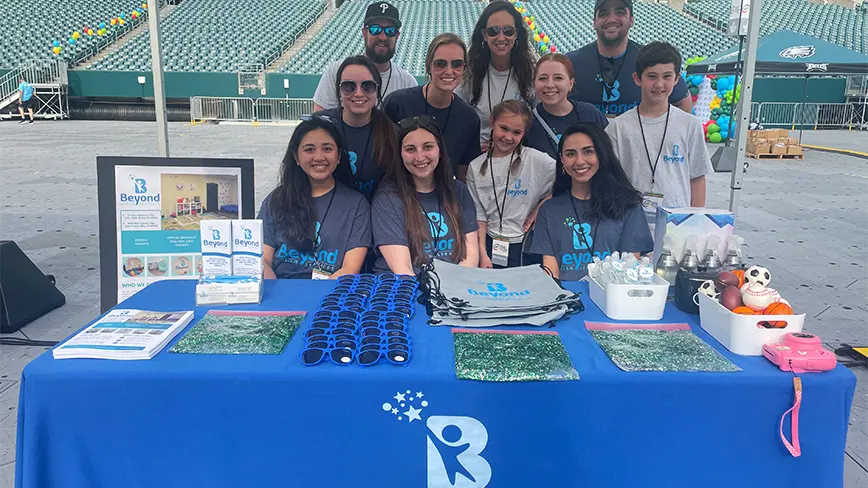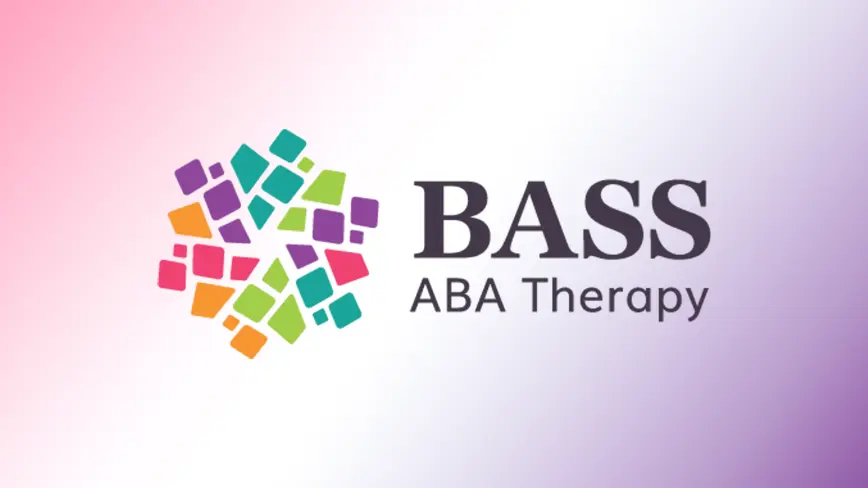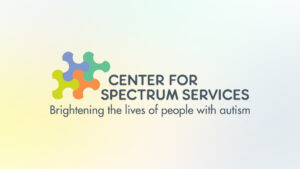The first five years of a child’s life are the most formative. During this time, the brain experiences the highest level of plasticity. As such, positive experiences in a child’s early years can establish a strong foundation for a lifetime of learning and adaptive behavior. Early childhood education (ECE) supports the development of lifelong emotional, social, cognitive, and language skills (Center on the Developing Child at Harvard University, 2020).
High-quality early childhood education equips children with the skills necessary to achieve their highest potential. According to the CDC, 1 in 6 children between the ages of 2 and 8 have a mental, behavioral, or developmental disorder (Centers for Disease Control and Prevention). Early intervention is especially important for children with special needs to support their unique learning trajectories. The immense benefits of early intervention for children with exceptional needs have been long established. Current research continues to demonstrate how vital it is for children with diverse learning needs to receive support early on in their educational journey (Tollan et al., 2023).
Research indicates early intervention may positively impact outcomes in:
- Health
- Language
- Cognitive development
- Social/emotional development
- Reducing economic burdens, including a decreased need for special education services (National Early Childhood Technical Assistance Center, 2011).
Supporting Educators for the Best Possible Outcomes
Not all early childhood education programs are created equally. Many factors influence the quality of services provided. Researchers have honed in on several ECE components associated with more positive outcomes. These include structural factors, such as using a quality curriculum and low adult-to-child ratios. They also include process factors such as educator training and support (Hong et al., 2019).
Early childhood education centers can support their educators to help promote the best possible outcomes for their students by:
- Investing in tools and software that make educators’ jobs easier and more efficient
- Reducing administrative tasks and digitizing record-keeping
- Providing quality curriculums with a heavy focus on social-emotional learning offering ongoing professional development to ensure educators receive training on the latest research and teaching methods
- Implementing mentorship programs for newer teachers
Assessing for Baselines
Early identification of autism and other developmental delays helps children receive the individualized care they need to thrive. Early childhood educators play an important role in identifying delays in functioning. Educators often use the Ages and Stages Questionnaire screening tool to pinpoint potential developmental delays. When this screening identifies a child as at risk, it opens the opportunity for a comprehensive diagnostic evaluation.
When children exhibit developmental delays, educators must holistically assess their strengths and areas of need to create an individualized educational journey tailored to their needs. One of the most extensive assessments that enables educators to evaluate young children across multiple domains is the Assessment of Basic Language and Learning Skills-Revised (ABLLS-R). This criterion-reference tool is geared toward children ages 2-12. It was designed based on B.F. Skinner’s framework of verbal behavior which is how all people develop language and communication skills.
The ABLLS-R evaluates a wide range of skills, focusing on a holistic view of the learner, including:
- Language and communication
- Motor skills
- Self-help skills
- Social development
- Academics and classroom routines
- Play and leisure
Early childhood educators should focus on developing skills in all of these areas to achieve the best possible outcomes. Building foundational learning skills and developing a communicative skillset in early learners allows them to access new environments, speaking partners, social interactions, and play activities.
CR Assessments is a digital assessment platform that early childhood educators can use when conducting the ABLLS-R for assessment for students with autism to drive learner success. CR Assessments support both an efficient intake and ongoing evaluation process. Reporting and analytics features enable educators to identify skills to target that would be the most meaningful for the learner. These skills can then be populated as objectives in the learner’s Individualized Education Program (IEP) or learning plan.
Building IEP Goals and Monitoring Progress
A thorough assessment enhances and informs the creation of individualized goals. Educators must craft goals that address the learner’s unique needs and enable them to experience new opportunities. A key component of an IEP involves baseline data and ongoing measurement of progress. Progress monitoring is critical for ensuring students are making gains toward their goals. Educators can make data-informed decisions about their teaching pedagogies when they record and closely monitor student data.
CR LiftEd, an evidence-based solution to data collection and curriculum management, allows educators, administrators, and other professionals to measurably improve teaching and learning outcomes for students with autism, IDD, and other developmental differences. Educators can use CR LiftEd to implement goals and monitor student progress, streamlining multiple aspects of their job. Thus, many experience reduced burnout and increased job satisfaction as a result. Empowering educators with the tools they need is pivotal to both the learner’s success and the teacher’s job satisfaction.
Early childhood educators and IEP teams can leverage the benefits of CR LiftEd for:
- Developing tailored and age-appropriate IEP goals
- Collecting data on learner goals and behaviors
- Monitoring progress
- Reassessing and realigning goals over time
- Streamlining communication and collaboration
- Compliant recording-keeping with a historical record of the learner’s progress
Incorporating Supportive Software
A central focus in early childhood education is teaching cooperation and independence in classroom routines and self-help skills. Many children with special needs don’t acquire skills as quickly in a group instructional format, but it can be difficult for educators to support each student with direct 1:1 instruction. It’s not uncommon for educators to get burnt out, especially when they have minimal support.
avail by CentralReach empowers educators by reducing the need for 1:1 teaching with supplemental digital support. Teachers can enhance student autonomy, building a foundation of independent life skills with individualized, digital task-analytic support.
Educators can use avail to teach a wide range of skills to support social interactions, school-readiness skills, and more, including:
- Waiting
- Taking turns
- Washing hands
- Opening a snack
- Appropriate play
- Peer interactions
The content and prompts are tailored to the child’s age, learning style, and preferences, ensuring individualization that meets every learner’s unique needs.
Empower Early Childhood Educators
Early childhood educators play a crucial role in shaping the trajectory of the lives of their students. During these formative years, children develop many foundational skills that can enhance their quality of life and support a lifetime of learning. Investing in quality software for ECE classrooms sets students, staff, and families on the right foot for long-term success. As Stephen Covey states in his book, The 7 Habits of Highly Effective People, “Begin with the end in mind.” Consider the impact that CentralReach’s educational solutions (such as early childhood education software, digital assessment platforms, and IEP software) can have on driving the best possible long-term outcomes across the lifetime of your students.
References
Ages and Stages. (2021, April 5). Why screening matters. Ages and Stages.
https://agesandstages.com/about-asq/why-screening-matters/
Center on the Developing Child at Harvard University. (2020, October 29). Inbrief: The Science of Early Childhood Development. Retrieved from https://developingchild.harvard.edu/resources/inbrief-science-of-ecd
Centers for Disease Control and Prevention. (n.d.). Data & Statistics. Retrieved from https://www.cdc.gov/childrensmentalhealth/data.html
Hong, S. L. S., Sabol, T. J., Burchinal, M. R., Tarullo, L., Zaslow, M., & Peisner-Feinberg, E. S. (2019). ECE quality indicators and child outcomes: Analyses of six large child care studies. Early Childhood Research Quarterly, 49, 202-217.
Partington, J. W. (2006). The Assessment of Basic Language and Learning Skills – Revised (ABLLS-R). Walnut Hill, CA: Behavior Analysts, Inc.
National Early Childhood Technical Assistance Center. (2011). The Importance of Early Intervention for Infants and Toddlers with Disabilities and their Families. Retrieved from https://files.eric.ed.gov/fulltext/ED522123.pdf
Tollan, K., Jezrawi, R., Underwood, K., & Janus, M. (2023). A Review on Early Intervention Systems. Current developmental disorders reports, 10(2), 147–153. https://doi.org/10.1007/s40474-023-00274-8
Posted in Special Education
You may also like...
Related information and stories
From Paper to Progress: How One School Is Going All-In on CR LiftEd for Academic and Behavioral Data
For nearly 50 years, Center for Spectrum Services has been a pillar of autism support across New York’s Mid-Hudson Valley, serving students from over 30 school districts through its Kingston…
Continue ReadingMeet the McCloskeys: Innovators in Executive Function Practice
Meet the McCloskeys: Innovators in Executive Function Practice Executive functioning (EF) skills, from focus and sustained attention to self-regulation and impulse control, are the foundation for success in school, work,…
Continue ReadingSummer Learning Loss and its Impact on Students
Summer learning loss, also known as the “summer slide,” is a well-researched phenomenon that refers to the decline in academic skills that occurs during the summer months. Each fall, educators…
Continue Reading






